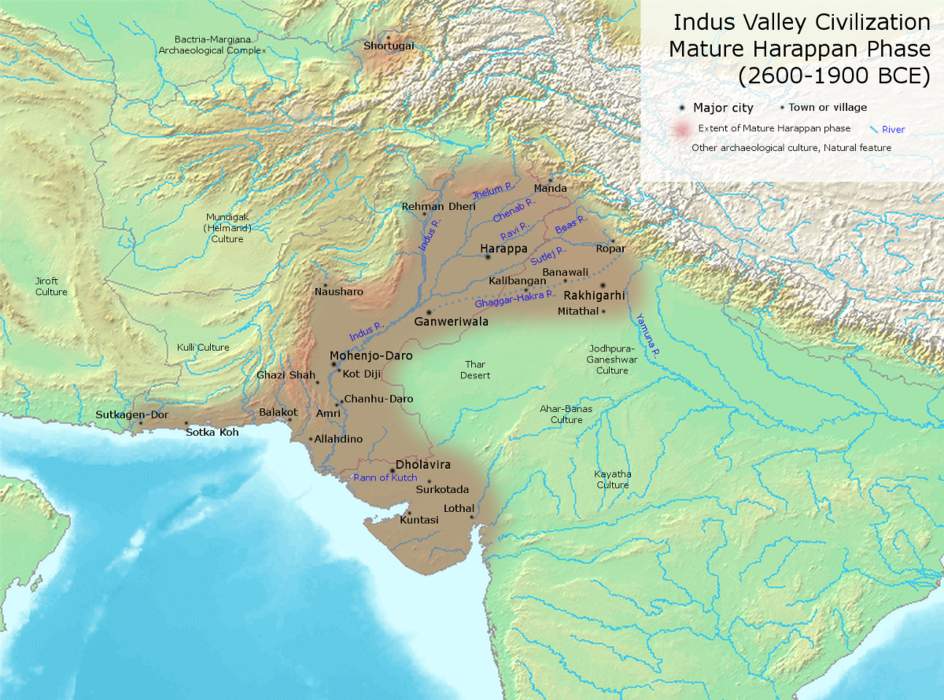Indus Valley Civilisation
Bronze Age civilisation in South Asia
Indus Valley Civilisation ▸ Facts ▸ Comments ▸ News ▸ Videos

The Indus Valley Civilisation (IVC), also known as the Indus Civilisation, was a Bronze Age civilisation in the northwestern regions of South Asia, lasting from 3300 BCE to 1300 BCE, and in its mature form from 2600 BCE to 1900 BCE. Together with ancient Egypt and Mesopotamia, it was one of three early civilisations of North Africa, Southwest Asia and South Asia, and of the three, the most widespread, its sites spanning an area including much of modern-day Pakistan, northwestern India and northeast Afghanistan. The civilisation flourished both in the alluvial plain of the Indus River, which flows through the length of Pakistan, and along a system of perennial monsoon-fed rivers that once coursed in the vicinity of the Ghaggar-Hakra, a seasonal river in northwest India and eastern Pakistan.
| 0 shares | ShareTweetSavePostSend |
You Might Like
Lost Cities and Found Fortunes: The Making of an Archaeological BreakthroughA century after the discovery of the Indus Civilisation was announced to the world, historian Dr Nayanjot Lahiri's book 'Finding Forgotten Cities' reveals the fascinating story behind one of..IndiaTimes - Published | |
Harappan site cave-in kills 25=year-old IIT-D researcherA 25-year-old climate researcher from IIT-Delhi died in a cave-in at a Harappan-era site in Gujarat's Lothal. She and a professor were trapped in mud while collecting sediment samples. The professor..IndiaTimes - Published | |
IIT Delhi student killed, three injured in cave-in at Lothal archaeological site in GujaratThe deceased and the other victims were at the ancient Indus Valley civilisation site to do research work when the cave-in occurred.DNA - Published | |
Was Indus Valley civilization impacted by a meteorite?Researchers from Kerala University have discovered melt-rocks in Luna, Gujarat, which are parts of a meteorite. Radiocarbon dating suggests that the meteorite impact may have occurred around 6,900..IndiaTimes - Published |
| Search this site and the web: |
